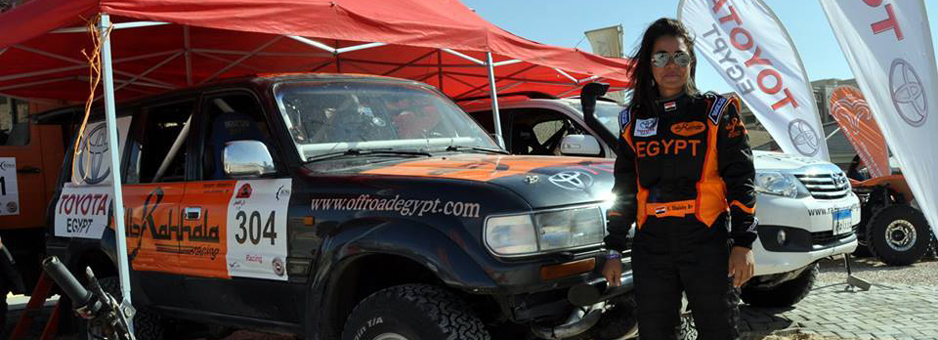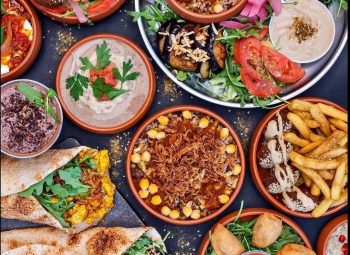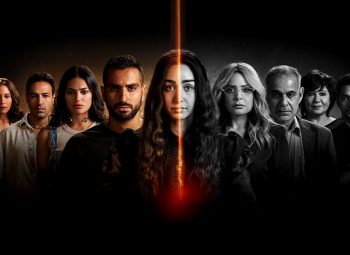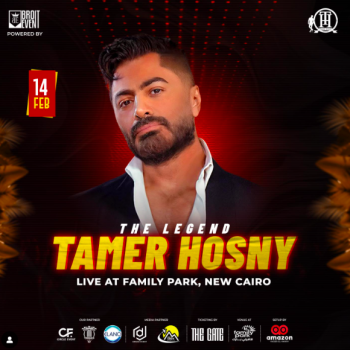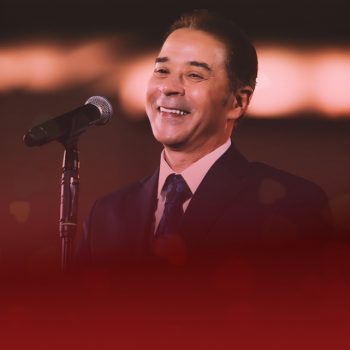When it comes to women's sports, Egypt seems to do a mighty fine job of sweeping many achievements under the rug. Granted, the likes Taekwondo Hall of Famer, Caroline Maher, swimmer, Farida Osman, and squash champion, Raneem El Waleily, have hit the headlines over the last few years, but it's not a stretch to say that they receive nowhere near as much recognition as their male counterparts.
While football remains Egypt's national sport of choice, there's been a slow but steady increase in the number of Egyptian women entering more niche sports - and it doesn't get more niche for women than rallying. In a sport built on cars, navigation and roughing it in the open desert - classic 'men's things' - Yara Shalaby has, against all odds, made huge strides as Egypt's first and only rally driver.
Cairo Gossip's Mahmoud Hussein sat down with Shalaby to talk about the thrill of competing, sexism in rallying, her new all-female team and more.
Let’s start with life before rallying – you were spending most of the day sat in front of a computer...
Yes, I worked in IT and programming. But my father was big on things like camping so I got my sense of adventure from him. He used me to take me on safaris and other outdoor trips.
A lot of girls ask me how I, as a woman, deal with the outdoors – I tell them just like men deal with it. The outdoors is where I feel alive.
So what made you shift from coding to pacenotes?
It started with a trip to Fayoum. I’d been several times and seen the well-known sites like Lake Qarun and Medwara Mountain. But then I went with some rally drivers and it kind-of changed my life. Instead of avoiding certain obstacles like sand dunes, they were crossing them and it felt amazing – it gave me a rush. At the same time, though, I found myself fascinated with their driving techniques, which pushed me towards the rally world.
The people I’d met also gave me a push; they kept telling me what a fast learner I was and, pretty soon, I was being asked to join races as a co-driver. That was the real start. I took preparations really seriously, because as a co-driver, the driver really relies on you. The more I got into it, though, the more I started considering the possibility of being a full-blown rally driver myself, especially when I started to realise that I might have what it takes. I entered as many local rallies as possible, before I started to look further at international ones.
What kind of reaction did you get from family and friends?
Being the adventurous type, my dad was very supportive of it as a hobby. When I told him that I wanted to race, though, he started worrying and asked me why. Like any parent, it was about safety – he was worried for me. I had no answer to why I wanted to race – I wanted to because I could. Nothing gives me more of an adrenaline rush than competing.
When I had my first accident, I was surprised with my dad’s reaction – he was really supportive and encouraged me to continue.
What was your first race like?
Going into the race, I quickly realised that it was a whole new ballgame than being a co-driver. I struggled a little with the car and my co-driver was pretty inexperienced – she would freak out every time we’d hit a dune! We even got lost at one point and the rally organisers had to come looking for us. It was a two-day race and I insisted that we at least compete in and finish the second leg. It wasn’t a perfect start, but at least we finished it and I learned a lot. I teamed up with a more experience co-driver and made sure the car was better prepared and it paid off – we came second.
What do you consider to be your most memorable race to date?
El Faraana, here in Egypt. It was my first international rally and I was the only first Egyptian female to enter. There were 5 stages, on 5 consecutive days – each around 500KM in distance. My car wasn’t approved by the FIA (Fédération Internationale de l'Automobile) so I wasn’t allowed to skip any of stages; I had to complete each one to be allowed to move on to the next stage.
After the first 50KM on one of the legs in Morocco, my car suddenly refused to go past 60KM/h. Most of the route was hard, steep dunes and my car wasn’t powerful enough to overcome them. By this point, it was dark, but I was determined to finish that leg of the race and I kept going until it was dawn. I kept driving for 22 hours straight and I went back as soon as I had something to eat, refuelled and fixed what needed to be fixed in the car. The next leg of the race has already started at its normal 7AM time. I had to take the wheel once more, so I ended up driving for 36 hours straight.
But I learned a lot from it. Quite often when something was wrong with my rally car, people would help me out; but I quickly decided that I wanted and needed to learn more about what’s under the bonnet so I can be prepared for any potential problems, because during official races, you’re not allowed any assistance; it’s up to you and your co-driver to fix any problems.
You also have a taste for motorcycles – gun to your head, bikes or cars?
I need to focus in one thing to excel in it, so I’d defiantly pick cars. But I bought a motorcycle a while back just for fun and the thrill of it. When I go into the desert, I switch between car and motorcycle depending on how I feel.

Initially, I had no real intention to participate in a motorcycle races. In 2014 there was a race supposed to be held in El Gouna, but the government had banned people entering the desert. To save the race the organisers decided to hold it within El Gouna, which I was disappointed about, but they also introduced a 10-lap bike race, which I entered.
Tell us up about the newly-founded Gazelle Rally Team.
A lot of women used to approach me looking to find out how I got into rallying and what they can do to follow suit. The problem in Egypt is that the only training you can get is by Nady El Sayarat. I wanted to be able to put my knowledge and experience into getting more women into all the levels and positions in rallying and to start an all-female crew, the Gazelle Rally Team. Our team members are Maud Botros (co-driver), Radwa Ayman (team manager), Hebba El Sherif (technical manager), Nihal Bassuoni (assistant) and Nihal Abou Gazia (Assistant). I’m hoping we can compete is as many international races as possible this year.

We all know that, in Egypt – and across the world for that matter – sport is male-dominated and that women breaking through is no easy task. Is the sexism as bad as everyone believes?
Yes, definitely. Some people were really supportive, but others became jealous and insecure. At the beginning of my career I was a part of a particular team that weren’t too happy when I started performing better than the male team members – even though all success benefits the team as a whole. It got a little extreme at times – some would go and demand to know the route that I took from the organisers to make sure that I hasn’t taken any shortcuts or cheated. Quite a few people did that, actually.
It’s down to ego. Like most sports, rallying is male-dominated; the difference here is that men and women compete against each other. I’ve found that some men just can’t handle being beaten by a woman.
There’s of course the stereotype of women being bad drivers. But both genders make mistakes, both genders have weaknesses. This ridiculous stereotype has numbed us to the complete lack of logic in the idea that women can’t drive – it’s got to the point where women themselves have come to accept it as fact. It’s absurd.
Stay up-to-date with Yara and the Gazelle Rally Team on Facebook.
__________
By Mahmoud Hussein
(Photos courtesy of Yara Shalaby/Gazelle Rally Team on Facebook)

